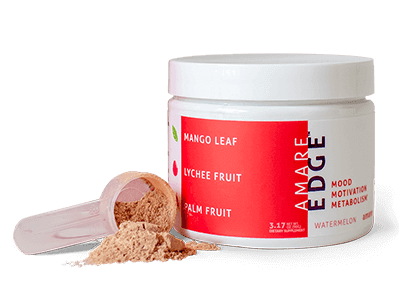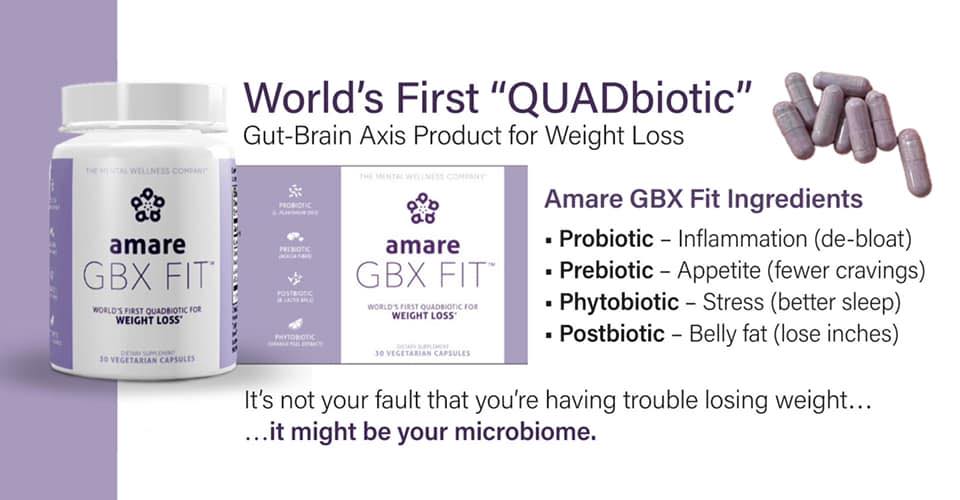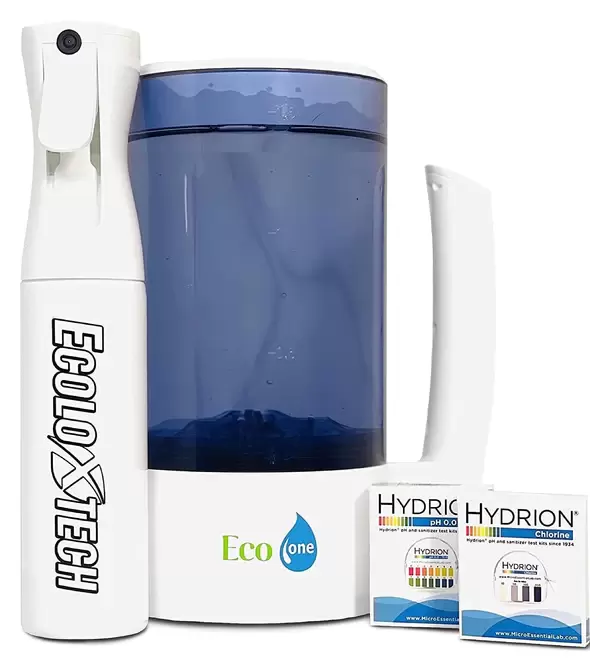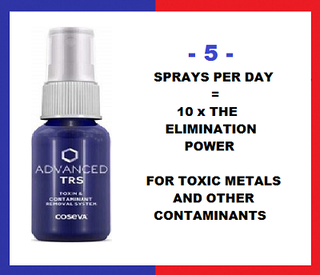|
BY BRENDAN WADE For the past decade coconut oil uses and benefits has seen a tremendous rise in popularity from athletes all the way to health conscious moms, making it a staple in a lot of homes. Coconut oil has extensive superfood package, so much so that we found over 101 coconut oil uses and benefits. From cooking to topical application on the skin, coconut oil packs a variety of compounds and properties that makes it amazing. Once ostracized by the medical community for it’s saturated fat content, further studies on saturated fat as changed the landscape of understanding what are healthy fats, and ultimately the benefits of coconut oil. In fact the rise of the paleo diet and keto diet has shown the tremendous impact healthy fats can actually have on our bodies. You might also be interested in: What is Coconut Oil? There are two types of coconut oil that you can find in most grocery stores. Fractionated coconut oil, also called “pressed,” is a type of coconut oil that doesn’t smell or taste like coconut oil. The refining process takes out some of its nutrition, so while it is useful, it isn’t as effective as unrefined coconut oil. Virgin Coconut Oil, also called “extra virgin.” This type of coconut oil hasn’t going through the refining process and retains its taste and smell. In cooking, it will produce a minor coconut flavor. Organic Coconut Oil If you apply it externally, you will get a slight scent of coconut. It retains all its nutrition, so it is more effective than the refined oil. For the very best quality, search for non-GMO organic extra virgin coconut oil. Coconut oil is the most nutrient dense part of the coconut. It is solid at room temperature like butter and doesn’t break down in heat or light. Most coconut oils are made from copra. Copra is the dried kernel or meat of the coconut. It can be made by smoke drying the copra, sun drying, or kiln drying, as well as combinations of all three. The end product made from copra is RBD coconut oil. Part of the reason coconut oil is such a powerhouse superfood is its unique nutritional profile. Lets dive in to see what the powerful benefits this oil has to offer in our everyday lives! Most of the fats in coconut oil are saturated but they are in the form of MCTs (Medium Chain Triglycerides), which affect the body differently than short and long chain fats. The MCTs are composed of:
Medium Chain Fatty Acids Most of the fats we consume are long chain fatty acids that must be broken down before they can be absorbed. Coconut oil is high in short and medium chain fatty acids, which are easily digested and sent right to the liver for energy production. Because MCTs are sent right to the liver for digestion, no bile or pancreatic enzymes are needed for digestion, making coconut oil a healthy food even for those with diabetes or those who have gallbladder problems. MCT oil can help increase metabolism since they are sent directly to the liver and give the body an instant source of energy. Most of the MCTs in coconut oil are the highly beneficial Lauric Acid. Coconut Oil Pulling Coconut oil pulling is one of the best ways to remove bacteria and promote healthy teeth and gums. Oil pulling works by cleansing the oral cavity in a similar way that soap cleans dirty dishes. It literally sucks the toxins out of your mouth and creates a clean, antiseptic oral environment that contributes to the proper flow of dental liquid that is needed to prevent cavities and disease. This unbelievably effective procedure has been used for centuries as a traditional India remedy to:
The Journal of Ayurveda and Integrative Medicine recently highlighted a study that reviewed holistic approaches to oral health and discovered that oil pulling is one of the most effective natural health solutions known to scientists that prevent tooth decay and loss. Benefits of Coconut Oil All of these MCTs are beneficial to the body. They are metabolized differently than longer chain fats, going straight from the digestive system to the liver. This provides a quick source of energy and brain fuel. These rare oils are naturally free of cholesterol and hard to find in nature. This may be part of the reason that coconut oil is so beneficial to the brain and for weight loss. It isn’t digested or stored in the same way as other fats and is more quickly available for use. Coconut oil is also a decent source of several fat soluble vitamins (mainly A and K) as well as healthy polyphenols. Lauric Acid Lauric acid is found in abundance in human breast milk and converts to a substance called monolaurin in the body. Monolaurin has been shown to be useful in increasing immunity and fighting viruses and disease. One study combined lauric acid-rich coconut oil with oregano oil, and found it effective in fighting the staph bacteria than antibiotics. It has also been shown to be preventative against some cancers. Coconut Oil is over 40% lauric acid, the richest source naturally available. Coconut Oil Uses 1. Coconut Oil in coffee In replacement of higher calorie coffee creamers (such as milk and sugar) coconut oil mixed with some butter in your coffee can be the morning healthy touch you needed. The bulletproof coffee has gained popularity recently and is an awesome way to enjoy a cup of coffee without the added sugars. The benefits of coconut oil mixed with butter in your coffee can be a surprise, with all the extra energy, bulletproof coffee might be your new thing. 2. Coconut Oil for skin 1 Eczema and psoriasis can be greatly treated and affected by coconut oil. While both are not the same thing they generally are red, irritated, often times chronic skin diseases, and both can be really uncomfortable. Use coconut oil to target patches of your body that are being affected, and rub on a thin layer to keep the area moisturized and healthy. The benefits of coconut oil also fights off fungus or bacteria that could set in as a secondary infection. 3. Coconut Oil hair If you suffer from dandruff and dry scalp coconut oil can be a great alternative to over the counter products with unknown ingredients. The added fat content as well as the natural anti-fungal impacts the scalp in a variety of ways. Use coconut oil 2-3 times a week to provide some anti-fungal action to help keep the itching and flakes at bay. 4. Coconut Oil Conditioner for horses Surprisingly, horses can benefit from coconut oil as well. Its well known that some humans prefer to use conditioners made for horses on themselves. Well now coconut oil is an effective conditioner not only for humans but also for horses. A thick, healthy, flowing mane and tail are wonderful to behold but for those with horses, well, we know it’s not always an easy thing to achieve that look. They get dirty, rubbed out, and downright edgy looking. Coconut oil can help get you closer to that luxurious tail, but things will get worse before they get better. Clean the tail/mane thoroughly and run in a very liberal amount of coconut oil. It will look greasy and unappealing. Do this for 5-7 days, and then rinse clean with shampoo. Prepare for a shiny, silken, soft mane and tail. It can also help ease irritation from things like sweet itch that may cause your horse to rub. 5. Coconut oil for Heartburn A great way to deal with acid reflux in a natural way is with coconut oil. If you’re feeling the burn, swallow 1-2 teaspoons of coconut oil. The coconut oil will provide a little coating down into your stomach and ease the painful feeling of heartburn or acid reflux. A natural way to fight heartburn. 6. Coconut Oil Lather Thanks to the combination of fatty acids (namely lauric acid) in coconut oil, it is fabulous for creating a luxurious fluffy lather in homemade soaps and shampoos. It is a much greener alternative than sodium lauryl sulfate, which is most commonly used to create lather in store bought products ranging from shampoo to toothpaste. 7. Coconut Oil for Bruises A bruise is caused by some sort of impact or trauma rupturing blood vessels beneath the surface of the skin. Coconut oil may help speed the healing of tissue when used externally, even taken internally, and can help repair tissue damage and reduce the time that it would normally take your bruise to heal and fade. 8. Coconut Oil for face Our bodies are rich with bacteria that are naturally present, and necessary, to maintain our health. There are instances though where some people find themselves with a specific strain of bacteria known as acne that grows past the point of being welcome. While acne is becoming increasingly resistant to antibiotics, coconut oil is an all-natural way to reduce the overgrowth. The facts are that coconut oil provides a strong foundation of anti-bacterial and anti-microbial properties that can be great for acne. 9. Coconut oil for skin 2 In comparison with your regular lotion, coconut oil delivers a refreshing, healing, burst of moisture that penetrates your skin and works to truly heal it. For a lot of people coconut oil for skin can feel a little too oily. However it is important to note that the greasy feel does go away, and to be honest the benefits outweighs the cons. Coconut oil is one of the best ways to moisturize your skin. 10. Coconut Oil Weight Loss Coconut oil weight loss can be a powerful tool, but if you sit around eating coconut oil, you aren’t going to lose weight. However, if used to substitute other fats, it can help you drop the pounds by taking the place of those other calories. Unlike most saturated fats, it’s mainly comprised of medium chain fatty acids, versus long chain fatty acids. This difference in molecular structure means that it doesn’t get packed away as fat as easily and instead is sent straight to the liver to be metabolized, giving you a boost in energy. This energy in turn makes exercising easier, and the exercise in turn helps you lose weight. Another major factor that it plays is as an appetite suppressant. Craving something you shouldn’t be? Have a tablespoon or 2 of coconut oil, and that sensation won’t last long! 11. Coconut Oil Energy Booster If weight loss isn’t your goal, just run with the fact (no pun intended) that it gives you a great boost in energy-and who doesn’t need some help in that department every now and again? Some people also feel it helps boost their mental alertness. 12. Coconut Oil for Fungal Infections The medium chain fatty acids found abundantly in coconut oil are incredibly effective natural fungicides. In a (coco)nut shell, they naturally insert themselves into the fungal membrane, which is crucial to maintaining the life of the fungus. This destruction of the membrane leads to the destruction of the fungus as a whole and voila! The fungus is eradicated. It is important to be diligent with applications of the coconut oil until your symptoms have cleared. 13. Coconut Oil for Cold Sores Cold sores are caused by the herpes simplex virus, generally type 1, and as such they have no cure. In fact a bacteria can be wiped out, while a virus cannot, making it a complicated situation for most. While coconut oil doesn’t wipe out the virus, but it can inhibit its assembly and how it spreads. Coconut oil contains a substance known as lauric acid. When combined with glycerol, it creates a substance known as monolaurin. Studies done so far have shown that monolaurin affects the lipid envelope of the virus, and prevents the virus from reproducing how it normally would. In turn, it is not able to spread as efficiently and tends not to last as long. Apply a bit of coconut oil directly to the sore several times a day. 14. Coconut Oil for Cholesterol and Heart Health Cholesterol can be of two kinds, the good cholesterol that continuously builds more vital cells. It goes through your bloodstream attaching to proteins known as lipoproteins. There are low-density lipoproteins (LDL) and high-density lipoproteins (HDL.) HDL is the “good” cholesterol, you want to lower LDL, but raise HDL. LDL carries cholesterol throughout your body and delivers it to organs and tissues. The problem is, if you have too much cholesterol, the excess keeps circulating. The constantly circulating LDL will eventually penetrate blood vessel walls where they build up plaques and narrow blood vessels, sometimes to the point blocking blood flow, causing coronary artery disease. HDL, on the other hand, picks up excess cholesterol and brings it to your liver to be broken down. Coconut oil, probably due to its high levels of lauric acid, will boost HDL. There’s no solid evidence saying that coconut oil alone will prevent heart disease, but there is solid evidence that it boosts HDL, therefore lowering cholesterol, and hypothetically reducing the risk of heart disease. Take ½-1 tablespoon daily. 15. Coconut Oil for House Use Most wood polish coats surfaces in a slick layer of synthetic chemicals, which makes the wood look all sleek and shiny…for a little bit. Coconut oil, on the other hand, sinks into the wood and keeps it looking “healthy” longer. The appearance is much more natural, and it stays that way. It may not look as dramatic as a store bought polisher, but I find it a much more pleasant and effective option to keeping wood looking it’s best. 16. Coconut Oil for dogs A lot of dogs suffer from atopic dermatitis, which can cause a lot of problems as well as allergies. From the inside out, coconut oil can help nourish the dry, irritated, or inflamed skin that is the result of the inappropriate response to various allergens. There are people who say coconut oil benefits has gotten rid of their dog’s allergies completely, but full studies have yet to confirm these claims. If your pup chews their paws and stains them red/pink/brown it can help in that department as well, as that is also a sign of allergies. Start with ½ teaspoon a day and work your way up to 1 tablespoon for 40+ pound dogs, and 1-2 teaspoons for dogs that weigh less. 17. Coconut Oil for Alzheimer’s Alzheimer’s is devastating to all who experience it, whether personally or with a friend or family member. It is no wonder that we search so desperately for a cure. The word that coconut oil could possibly “cure” or prevent Alzheimer’s started circulating with vigor when a pediatrician published a book about feeding coconut oil to her husband, who suffered from Alzheimer’s, and got positive results. Other studies have confirmed that ketones, which are essentially “brain food” provided to keep the brain functioning when the body runs lower on glucose, can help improve memory, and potentially “reverse” the effects of Alzheimer’s. It’s a much more complex subject and process, but that’s it in a really wrapped up nutshell. The dosing that I have uncovered implies 2 teaspoons taken daily with food to help improve cognitive function. 18. Coconut Oil Soothe Fly Bites Oh the sweet relief of coconut oil. When the black flies start biting, it’s the first thing to reach for. I use it the most on my horse come summertime to soothe any nasty bites that she gets, but don’t hesitate to dab a little on myself (or the dogs.) Just get a little on your fingertips and apply it directly to the bite. 19. Coconut Oil for Butter and Oil Replacement There’s no better way to get the benefits of coconut oil than to replace other less desirable fats with it. When cooking or baking, substitute it for butter or just about any oil. It lends moisture, freshness, and richness to baked goods, and a subtle complimentary flavor to savory dishes. How much you substitute will depend on the recipe you are making. For baking, most people will fall in the 1:1 ratio or 80% coconut oil 20% water when subbing for butter. For basic cakes, cookies, and brownies I find 1:1 to be sufficient. When it comes to more complex pastries that get their flaky puffiness when steam is escaping, you may find yourself tweaking the amount a little. For oil substituting, subbing 1:1 is a good route to go. 20. Coconut Oil for Massage Oil The benefits of massage are countless, and we could all use one now and again. Rather than using a heavy lotion, simply use coconut oil. You can add essential oils for scent if you like, but I find the smell of coconut oil alone to be heavenly. It also leaves your skin truly moisturized and soft. 21. Coconut Oil for Diaper Cream Got a little one with a chapped or irritated bum? Look no further than pure coconut oil. With its antibacterial, antifungal, and antiviral actions, plus its soothing and moisturizing benefits, it makes the ideal “DIY” diaper cream. For a little extra soothing power, try melting it with a bit of shea butter and whipping the two together after they have solidified some. Apply only as much as needed to affected area as you would any other diaper cream. 22. Coconut Oil for Inflammation Coconut oil appears to have a direct effect on suppressing the natural chemicals responsible for mediating inflammation. The studies that have been done on this action so far point to lauric acid and capric acid as the biggest contributors, both of which are part of the magnificent medium chain fatty acids found naturally in coconut oil (capric acid alone makes up roughly 10% on its own. 23. Coconut Oil for Nipple Cream After breastfeeding, and a couple of times a day as needed, gently rub a small amount of coconut oil on and around the nipple. After you finish breastfeeding, be sure to pat the area dry before applying the coconut oil. 24. Coconut Oil Deodorant Sweat on its own typically doesn’t smell. In fact, most sweat doesn’t smell at all, since most sweat glands on our body are eccrine, which produces mostly water with some salt and maybe some uric acid. Apocrine sweat glands become active during puberty, and produce sweat from our underarms, around the genitals, etc. The sweat from apocrine glands has other stuff in it, such as lipids (fats.) When the bacteria on our skin feed on these fats, the byproducts smell. Like store-bought deodorant, coconut oil helps decrease the bacteria count that’s causing the odor. Mix about a tablespoon of arrowroot powder into 3-4 tablespoons of coconut oil for an easy homemade deodorant. Apply as needed; adding beeswax to solidify it some if you feel the coconut oil is too thin on its own. 25. Coconut Oil Bath Oil Soften your bath water, and your skin, with a bit of coconut oil. Enjoy its lovely aroma and gently swish it around now and then to swirl it through the water. It will naturally coat your skin, leaving it smooth and healthy. 26. Coconut Oil for Rash Soother There are two things that come to mind when I think of discomfort caused by a rash of any kind-itching and painful swelling. Coconut oil, with its anti-inflammatory effects, is an obvious go-to for helping the swelling. It will also help take the edge off the dreadful itching, curbing the vicious cycle of scratching and further irritating your skin. 27. Coconut Oil for Cutting Board Conditioner Wipe down the cutting board with a damp towel and then dry it. Use a soft cloth to rub in some coconut oil, and let it sit for 10-15 minutes. Buff with a fresh cloth. For a little extra odor removing kick, add a few drops of lemon essential oil (or even just a small squirt of lemon juice. 28. Coconut Oil for Lice If your little one comes home from school with lice, dip a fine toothed comb in coconut oil and run it through their hair. You can also use it as a precaution if there is an outbreak. 29. Coconut Oil Frizz-Fighter In the deathly dryness of winter, or on steaming humid days, hair can get a little wild. If your mane has a mind of its own, put a *small* amount of coconut oil on your fingers and run them through your hair to get a handle on the frizz. 30. Coconut Oil On Toast A simple way to replace butter. Spread some coconut oil on toast for a tasty (and filling) snack. 31. Coconut Oil for Popcorn Topping Melt some coconut oil and drizzle it over your popcorn. Add a touch of salt, toss until each piece if coated, and enjoy a magnificent show time snack. 32. Coconut Oil for Wounds Antibacterial and antifungal properties make coconut oil an ideal salve for minor scrapes and scratches. Mix some up with a little bit of honey (also antibacterial) and apply a dab to the area, or just use on its own. Don’t slather it onto a great big gaping cut, but for little stuff it’s a great thing to have in your all-natural first aid kit. 33. Coconut Oil for Small Motor Lubricant Use a small amount of melted coconut oil to lubricate small motors, such as on blenders. A little goes a long way. Too much and it can have the opposite effect of running smoothly when it solidifies. 34. Coconut Oil for Hairballs Strong anecdotal evidence supports using coconut oil to reduce hair balls. There are also those who feel medium-chain triglycerides aren’t the way to go with our cats, so do some research to decide what you are comfortable with. Rub a little on your cat’s paws to help improve digestive function and reduce hairballs. 35. Coconut Oil for Aromatherapy Add your favorite blend of essential oils to some coconut oil to dab on your temples and the back of your neck when you feel stressed or nauseous. Peppermint and eucalyptus for headaches and tension, or lemon/lime/orange for nausea, are nice places to start. 36. Coconut Oil for Dog Treats Also known as “coconut cubes” these tasty chilled treats will help keep your pooch cool the glorious warm weather comes. Mix some peanut butter with coconut oil and freeze into an ice cube tray to feed as a special treat to your pups on hot summer days. Feed them outside or on a smooth floor to avoid getting your carpet messy! 37. Coconut oil for Dry Nostrils Dry nostrils feel like they need to be picked at. Picked at nostrils become sore and irritated nostrils. It’s a vicious cycle. Rub a little bit of coconut oil on the inside of each nostril to moisturize it. Use only a little bit. Because coconut oil melts rapidly at body temperature, too much can make you look (or feel) like you have a runny nose! 38. Coconut Oil for Eye Bags Put the beauty back in beauty sleep and use coconut oil to help get rid of those dark circles that make you look so exhausted. Every night, rub a little bit of coconut oil under your eyes to reduce puffiness and dark bags in the morning. 39. Coconut Oil for Dry Elbows Elbows are one of the hardest places to keep soft. Rub coconut oil onto them morning and night to help them stay supple. 40. Coconut Oil Insect Repellant Coconut oil can help keep the bugs at bay. You can also try melting down the oil and stirring in some essential oils (such as peppermint or citrus) and then making a bug repellant bar of sorts that you can reapply. 41. Coconut Oil for Bee Sting Soother To help reduce the swelling, heat, and pain that comes along with bee venom, rub a little coconut oil onto the site after the stinger has been removed. For an extra soothing kick, add a drop of lavender essential oil to it as well.
42. Coconut Oil for Chapped Nose To help clear up that sore spot, gently wipe away any goobers with a washcloth dipped in warm water. Pat the excess water off and rub a little bit of coconut oil onto the skin to moisturize and heal the area. The antibacterial/antifungal benefits can’t hurt either! 43. Coconut Oil for Mouth Guard The antibacterial and antifungal constituents of coconut oil take center stage here. Rub a little bit of it onto your retainer after rinsing it at night to help keep it clean, and it doesn’t taste so bad either. You can also use this on a mouth guard as well. If you’re going to get tackled to the ground, you might as well have a pleasant taste in your mouth when you hit the dirt. 44. Coconut Oil for Toothpaste Add flavor, antibacterial action, and potential whitening benefits by adding coconut oil to some baking soda and using as a DIY toothpaste. For a little extra flavor, mix in a drop or two of peppermint or cinnamon essential oil. 45. Coconut Oil for Arthritis Pain Acute inflammation present with arthritis is responsible for quite a bit of that accompanies this common malady, which can be eased by the anti-inflammatory effects of the coconut oil. Massage a bit of the oil into each joint thoroughly 1-2 times a day to relieve soreness. 46. Coconut Oil for Athlete’s The anti-fungal action of coconut oil helps fight off athlete’s foot when you apply it daily. Be sure to rinse your feet first and pat them dry, then thoroughly apply a thin layer of coconut oil, massaging it in well. Wash your hands before applying to the other foot to avoid spreading the fungus. 47. Coconut Oil for Sore throat Can’t ease that painful throat? Coconut oil provides a wonderful soothing coating, whether the discomfort is caused by dry air or an illness. Swallow ½-1 teaspoon up to 3 times daily to ease the pain, being sure to make one of those times right before bed. For an extra kick, melt the coconut oil down and stir in a little honey (its ok if it separates some.) When it is mostly room temp, mash up the mixture a little bit and use the same as above. 48. Coconut Oil for Dry Cough You don’t want to suppress your cough if it is productive, meaning you are coughing up phlegm. Your body needs to get rid of all that stuff. However, if you have a dry hacking cough, swallowing a teaspoon or so of coconut oil can help ease the itchy irritation. It is especially nice because it coats your throat and seems to protect it more from irritating things such as dust, whereas water only provides very temporary relief. 49. Coconut Oil for Stretch Marks There is no magic method to prevent or get rid of stretch marks. Indeed, how noticeably you get stretch marks are based a lot on genetics. They are caused by, literally, a stretching of the skin. This may occur during pregnancy, puberty, during rapid muscle mass gain, etc. and tend to be more extreme when there is an excess of cortisol (a stress hormone produced by the adrenal glands) involved. Cortisol damages elastic fibers in the dermis. Put simply, the marks appear when the lower layers of the dermis tear for some reason or another. Anecdotal evidence suggest that keeping skin moisturized and supple can help prevent stretch marks, and what better moisturizer than coconut oil? Rub some onto the area twice daily (for example, your belly if you are pregnant) and massage it in well. You can also melt down some cocoa butter with the coconut oil for an extra moisturizing boost. 50. Coconut Oil Ink Cleaner Don’t cry over spilled ink. If you find yourself with irritating ink smears and smudges on your hand, simply rub a little coconut oil over it and let it sit for a minute or two. Wipe off with a dry, clean, cloth. 51. Coconut Oil Lubricant *not compatible with latex Yup, coconut oil can be used as a natural and effective alternative to store-bought lubricant. It is not compatible with latex though, as it causes it to lose its elasticity and break down, so do not use it with condoms. Coconut oil + condoms = baby, so be cautious in using it with condoms. 52. Coconut Oil Detail Your Car Coconut oil provides a lustrous sheen to the inside of your car, be it the dashboard or leather seats. You can also use it to buff out little scratches that might be marking up the paint job. The best part(s) are that it soaks in, lasts a while, doesn’t attract dust, smells great, and is all natural. 53. Coconut Oil Soothe and Prevent Hangnails Rubbing some coconut oil around the outer edges of your nail can help keep the skin soft and pliable, making it less likely for it to “rip” and land you with a hangnail. When the little bits of skin get hard and stiff, rubbing some coconut oil on it will also help soothe the pain with its anti-inflammatory actions. 54. Coconut Oil Udder Soother Cracked teats are, as one can imagine, terribly uncomfortable for the cow. Not only that, but it provides an area for bacteria and infection to multiply, which is the last thing you want to happen. Just like coconut oil provides wonderful soothing moisture in the form of nipple cream for humans, it makes an awesome one-ingredient udder balm. Simply apply as you would any other udder balm. 55. Coconut Oil Detangler When you’ve got a nasty tangle, try using coconut oil to ease it out without any yanking, eye watering, or ripped out broken hairs. Dampen your hair well and then massage in coconut oil, letting it sit for 2-3 minutes. Starting at the bottom of the hair shaft, gently work your way up with a comb to get through the tangles . 56. Coconut Oil Cracked Heels Cracked, dry, heels? As a super moisturizer, coconut oil can help soften and smooth over that skin. Use a pumice stone first to slough off any excess buildup of cells, and then get a little bit of coconut oil on your fingertips. Massage into your heels well, and let dry. Repeat twice daily. 57. Coconut Oil Breath Freshener Make somebody feel like they’re lounging in the tropics when they get close to your face. If you suffer from bad breath, kick the problem with coconut oil by holding a teaspoon or so in your mouth until it melts, swishing it around a bit, and then either swallowing or spitting it into the trash. The antibacterial properties in coconut oil make it useful for ridding your mouth of odor causing bacteria. 58. Coconut Oil for mouth sores This sounds obscure, but it is a much more common occurrence than it seems. Angular chelitis is inflammation of the lips, technically, but often times appear as little “splits” or “cracks” in the corner of your mouth. When this happens, fungus can jump on the opportunity to infect the little area. Rub a little bit of coconut oil on the sore spots 2-3 times daily to keep yourself comfortable and to fight off fungi. 59. Coconut Oil for sun Coconut oil in and of itself is not sufficient as sunscreen. On its own, it has an SPF (sun protection factor) of 4-6. This helps a little, but not enough to make it a substitute. That being said, try applying coconut oil in between reapplications of sunscreen. It will help hydrate your skin and prevent it from drying out. Should you get burned, it can also help prevent peeling and itching. 60. Coconut Oil for blood Circulation We need proper circulation to not only function, but to heal as well. Not to mention feeling cold all the time (or having people shudder at your frigid touch) isn’t fun. Coconut oil, taken internally, may help improve blood flow. As it can raise the levels of HDL-or “good”-cholesterol, the ratio between HDL and LDL-“bad” cholesterol-are evened. Since LDL cholesterol can affect the viscosity of blood, and “thicken” it, lower levels lead to thinner blood which leads to better circulation. Start with a ½ tablespoon a day and work up to 1 tablespoon to give your circulation an energy boost. 61. Coconut Oil for Baby Bath Babies have wonderfully soft, smooth, healthy skin-and we want to keep it that way! Try adding a little bit of coconut oil to your little one’s bath to help keep skin soft and smooth. It will also help soothe any little rashes, scrapes, or bothersome bug bites that may be bothering them. 62. Coconut Oil for Cradle Cap Cradle cap is typically a harmless condition that results in patches of yellowish, thick, sometimes greasy scales on your baby’s head (although it can occasionally be found on other areas of the body as well.) Like true adult dandruff, there could be several causes of cradle cap, including an overgrowth of yeast or over productive oil glands. To help loosen and remove the crusty flaking scales, dampen little one’s hair/scalp and gently apply enough coconut oil to cover the affected area-it doesn’t need to be thick. Leave it on for 15 minutes (or longer if needed) to soften the scales. Then use a soft bristled baby brush or very fine toothed comb to loosen and remove the patches. Follow up by rinsing with a regular mild baby shampoo to remove the rest of the oil from the hair. 63. Coconut Oil for Dry Canine Nose Rub a tad onto your dog’s nose if it is perpetually dry and cracked. This remedy is smoosh-faced breed approved. 64. Coconut Oil for Flaky Scalp Different from dandruff, having a flaky or dry scalp simply results in those annoying snowy white flakes that you can seem to get rid of. With its super moisturizing prowess, coconut oil can help provide nourishing moisture to a thirsty scalp. Wet your hair, and then massage coconut oil over scalp, using just enough to cover the area. Let it sit for 10-15 minutes, and then rinse it out. Follow up with a small amount of very mild shampoo to ensure a non-greasy look when finished. Repeat this at least 3 times a week, or as needed, to prevent dry scalp. 65. Coconut Oil for Fine Lines There are two main things that keep the skin supple but firm, collagen and elastin. Collagen is what gives skin it’s “firmness” while elastin is what allows it to stretch and then return to its original shape. Collagen production slows as we age, which is part of why wrinkles start to appear, and elastin production is stopped completely-hence your skin no longer snaps back into place if you pinch it. Coconut oil’s biologically active components (such as certain fatty acids) have been shown to increase collagen cross-linking, which is part of why it helps wounds heal faster. This same principle may be why it helps reduce fine lines/wrinkles. Apply twice daily, using as little amount as possible and rubbing in thoroughly, to reduce the appearance of fine lines. 66. Coconut Oil for Osteoporosis Coconut oil can help ease osteoarthritis in a number of ways. Trabecular bone is one of two types of bone structure-it is “spongy” and has a higher surface are to mass ratio. It is typically the most harshly affected type of bone in osteoporosis. The trabecular number refers to measure of bone texture and structure, and marks the risk/severity of osteoporosis. Unlike plain calcium therapy, which reduced trabecular separation, coconut oil increased bone volume and the trabecular number in studies conducted with rats. Rats are good subjects to study when it comes to bone disease, as the remodeling and resorption process in rats is similar to that of humans. Osteoporosis caused by oxidative stress may also be lessened due to the potential anti-oxidant effects of coconut oil, while coconut oil also helps the absorption of calcium. 67. Coconut Oil Remove Rust Rust is somewhat of an inevitable fact of life. Unless you can keep your scissors/knives/etc. away from oxygen, you’re going to encounter rust eventually. To get rid of these pesky spots, spread a thin layer of coconut oil over the rusty area. Let it sit for 1-2 hours, then run warm water over the oil and wipe clean with a soft cloth. 68. Coconut Oil for Food Poisoning Bacteria and germs have become more prevalent-and harder to wipe out-every year. Even just E. coli has surged with the forms of packaging, preparation, and shipping that we use in the modern world. So what does one do when crippled in bed or chained to the porcelain throne? Take 2-3 tablespoons of coconut oil with orange juice every day. With its antiviral, antimicrobial actions that can defeat even the most stubborn illnesses that you would have to suffer through, it is (almost) a literal life saver. 69. Coconut Oil Teething Gel Teething occurs (typically) between six and nine months of age, and does not actually involve the teeth cutting through the gums. Rather certain chemicals are released that cause some cells in the gum tissue to selectively die off, which results in the gums separating and allowing the teeth to come through. Coconut oil can help tame some of the irritation and inflammation that tends to come along with the process of teething. Simply rub a little over the gums with your finger. To add an extra pain killing kick, add cloves to the mix. Naturally containing eugenol, a painkilling substance still used today, cloves can help ease teething woes. Some people use clove essential oil, but I don’t use essential oils directly with babies or very young children. Instead, add 2 teaspoons (up to 1 tablespoon for the maximum dosage) of whole cloves to ¼-1/2 cup of coconut oil and let it sit over low heat for 1 hour. There is no need to remove the solids, since you can scoop the oil out around them, but any botanical matter will shorten shelf life. 70. Coconut Oil Dust Repellant A thin layer of coconut oil rubbed into certain surfaces (such as wood, or a dashboard) can help keep dust from collecting. It seems counterintuitive, like the dust would just stick in the coconut oil and make it all fuzzy, but it doesn’t. Instead you get a nice lustrous polished look and you keep the dust bunnies at bay. Rub a small amount over the desired area, being sure to rub it in thoroughly, and then allow it to dry. Use ONLY enough as needed. Be sure to test on a small area first to make sure it does not discolor or in any way negatively affect the surface. 71. Coconut Oil for Snow Shovel Clearing heavy, wet, clumping snow can be backbreaking work, especially when it clings to your shovel, building up and weighing it down. To keep the snow sliding effortlessly off your shovel, rub a thin layer of coconut oil over it. Reapply as needed-usually 1-2 times a week, depending on how often you’re shoveling. If you have a toasty heated garage, keep the shovel some place cooler to prevent the oil layer from simply melting off. 72. Coconut Oil Clean Sap I am not sure why, but rubbing coconut oil on the sappy spot with and then rinsing with warm soapy water does wonders for sap as well as honey 0r any other sticky substance. 73. Coconut Oil for Zipper Apply a bit of coconut oil on the jammed zipper, rub it in a bit, and it should glide with ease. 74. Coconut Oil for Beard If you’re going to for a sleek, styled look, use a little bit of coconut oil to shape your beard or mustache into your desired look. 75. Coconut Oil for Sticky, Squeaky, Hinges It’s hard to be subtle when you have a squeaky door. Your plans for a midnight raid of the snack cupboard will be thwarted if a door makes a racket when you open it. Rub a little coconut oil into the hinges to stop the squealing. 76. Coconut Oil for Cheekbone Highlighter Highlighting your cheeks gives you that little extra glow that people can’t quite place, but definitely notice. Apply a small amount of coconut oil the same as you would another cheekbone cream to give yourself a naturally beautiful glow. 77. Coconut Oil for Plants The last thing your beautiful, green, healthy plants want is a waxy silicone shine that makes their leaves glisten unnaturally. Rub a tiny bit of coconut oil into them to keep leaves looking healthy and dust-free. Reapply every few days or as needed. 78. Coconut Oil for Lawn Mower Blades Apply a thin layer of coconut oil over clean lawn mower blades to prevent grass clumps from sticking and jamming the mower. 79. Coconut Oil Grease Baking Pans There’s nothing like slaving over a beautiful baked good and then watching it crumble as you try to take it out of the pan. Avoid this heartbreak by greasing pans lightly with coconut oil first. 80. Coconut Oil for Makeup Brushes Preserve your delicate make up brushes by cleaning them with coconut oil. Simply melt down some of the oil in a glass and dip the brush into the liquid, coating it thoroughly. Then gently swirl the brush on a paper towel or washcloth until the color or product is gone. Rinse under warm water, and dry. Any bit of residue tends to make the bristles quite soft, but you can also use a mild soap and water to remove it if you find it bothersome. 81. Coconut Oil for Ringworm Ringworm, despite sounding like a parasite, really falls under the same category as athlete’s foot, a related skin infection, caused by one of several types of mold like fungi that feed on the dead tissue in nails, skin, and hair. Ringworm typically presents itself as a red scaly or slightly raised bump. It will generally begin to look like a ring-hence the name- that has scaly edges. Itchy and uncomfortable, it’s not fun to have hanging around. Washing your hands before and after application, rinse the affected area with water and pat dry before rubbing in a small amount of coconut oil up to 3 times a day. 82. Coconut Oil for Bicycle Chain If you want to try “green grease” try a little bit of coconut oil on your bike chain to keep it running smoothly. A thick layer is not needed, as coconut oil solidifies temperatures under 76 degrees Fahrenheit, and you don’t want to gum up your chain. 83. Coconut Oil for Eyelash Enhancement Long thick eyelashes are something many people desire, but that doesn’t mean they’re easy to come by. To get those luscious upturned ‘lashes, apply a little bit of coconut oil to your eyelashes nightly. The proteins can help encourage growth and seal in moisture, preventing brittleness and breakage. 84. Coconut Oil for Kitchen Appliances Rub a thin layer over the blades of kitchen appliances to keep them running smoothly. Be sure to store in a cool place so the layer stays firm. 85. Coconut Oil Homemade Soap If you’re interested in soap making, coconut oil serves as a wonderful pure base that can simplify ingredients, add hardness to the soap, and help break down grease and oils. It can break them down so effectively, in fact, that too much will have a drying effect (when in soap form.) To prevent this, you need to “superfat” your soap-that is, adding more oil than the lye turns to soap. All you need is coconut oil, water, and lye. Don’t be shy of lye. While it should be handled with care, I find it essential to soap making, and it eliminates a slew of other chemicals that you would need to add to recreate its effects. 86. Coconut Oil for smoothies Boost the nutrition and improve the consistency of smoothies. Coconut oil turns out to be a great smoothie ingredient! 87. Coconut Oil for freezer burn Before you put something in the freezer, especially something like a sauce, add a layer of coconut oil at the top (keep it thin). This will form a seal, which will in turn prevent freezer burn. Very handy! 88. Coconut Oil for mayo If you enjoy mayonnaise, you can make your own using 2/3 cup coconut oil, 2/3 cup olive oil, a teaspoon of mustard, a tablespoon of lemon juice or apple cider vinegar, and four egg yolks. It’s much healthier and tastes great! 89. Coconut oil for lip gloss or chapstick Just as you can use coconut oil as a moisturizer for your hair and skin, it works as a moisturizer for dry lips. Just apply a tiny bit, and you will keep your lips moist and healthy. They will look and feel fantastic, and it’s an all-natural approach. 90. Coconut Oil for fade Age/Sun Spots Coconut oil can help heal or lessen the appearance of a wide variety of skin blemishes, and people have found that daily application of it have helped fade sun or age spots. Rub coconut oil onto sun spots daily to help fade them. 91. Coconut Oil for cellulite A lot of promised cellulite treatments don’t really work, but here is one that does. Use a soft bristled brush and sweep it over your legs upward toward your heart. This is known as dry brushing. Follow it up with coconut oil applied to the same areas. If you do this regularly, you should start seeing a reduction in your cellulite after a couple of months have gone by. 92. Coconut Oil for natural face mask If you like using facial masks to help you clear up your complexion, you can make your own facial mask out of coconut oil and honey. Mix them together so that you get that thick consistency you would expect from a facial mask. A great addition is carrot seed oil. This will help to improve your skin tone. Apply it and wait for around fifteen minutes, and then wash it off. It should really clarify your complexion and give it a nice glow. 93. Coconut Oil for relief from sunburn Just as you can use coconut oil to make natural sunscreen, you can also use it to get relief from the sunburn you already have. Make a 1-to-1 mixture of coconut oil and aloe vera gel, and rub it gently into your skin where you are burned. The mixture should be soothing on your burn. If you put it in the fridge before applying it, it will be even better. 94. Coconut Oil Soothe skin infected by poison ivy, oak, or sumac If your itch was caused by one of these pesky plants, you may get relief by applying the coconut oil directly to the site. Also try a warm bath with some coconut oil added to your water. 95. Coconut Oil for toenail fungus Here’s another nasty unwanted guest you may be able to chase away with coconut oil. Get rid of as much of the fungus as you can by hand, and then apply the coconut oil to the spot. You may need to do this several times a day for weeks to notice a difference, but keep at it and you should see an improvement eventually. 96. Coconut Oil for excess wax in your ears Natural oils work great for getting wax buildup out of your ears. Try a drop or two of either olive oil or coconut oil for excellent results. While some people recommend a cotton swab, it is generally safer not to poke things in your ears. Use an eyedropper and simply tilt your head to add the drops. Then tilt your head the other way to let the oil drip back out. It usually takes some time for the oil to come out completely, but it will help to break up the wax. This is a safer and more pleasant alternative to flushing out your ears. 97. Coconut Oil Immune system boost Because coconut oil fights bacteria as well as viruses and fungi, it can boost your immune system. Just take it regularly using the dosage recommended at the beginning of the article. Be sure you take the unrefined variety of coconut oil so you are getting all the health benefits. 98. Coconut Oil for pink eye Pink eye can have a variety of causes, and may require antibiotics or another medication to cure, but if you are stuck at home, you can try using coconut oil as a remedy first. The curative properties of coconut oil make it effective in some cases, and there is a chance your pink eye will resolve itself if you dab the oil on your eyelids. Just apply it to a cotton ball, and then follow up with a warm or cold compress. Warmth will soothe itchy eyes, and cold will reduce swelling. 99. Coconut Oil for yeast infection According to nutritionist Dr. Bruce Fife, coconut oil is a great treatment for yeast infections because it contains lauric acid and caprylic acid. Fife theorizes that the medium chain fatty acids found in coconut oil are capable of killing candida in the intestines. 100. Coconut Oil for digestive problems If you have indigestion related to a bacterial, viral, or fungal infection, taking coconut oil may help you to start feeling better again. Not only will coconut oil help to fight the infection, but it will also increase your body’s absorption of healthy nutrients from your food. These nutrients will strengthen all of your body systems, leading to all-around improvement. It may be just what your body needs to start getting healthy again. As seen at https://www.diamondherbs.co/coconut-oil/ |
|
||||||
| Quick Start Guide to Turmeric | |
| File Size: | 5178 kb |
| File Type: | |
Categories
All
10 REASONS TO EAT A TEASPOON OF BEE POLLEN EVERYDAY
12 Health Benefits Of Okra That Will Make You Love Greens
16 Detox And Health Secrets Of Wonder Root Radish
And Hashimoto’s!
And Obesity
ANTI INFLAMMATORY FOODS With CRAZY Powerful Healings Benefits
Benefits Of Vitamin D: The Sunshine Vitamin For A Healthier You
Chronic Fatigue
Coconut Milk And Coconut Oil: The Other 'Magic' Ingredients In Golden Milk
Coconut Oil ~ 101 Benefits & Uses You Can Take Advantage Of
Coconut = Plant Of Life
Coconut Water Is Good For Cancer Patients
Coconut Water Is Good For Chemo Patients
Coconut Water Nutrition Facts
Eat Jamaican Produce
Fermentation - The Secret To Sauerkraut’s Health Benefits
Fibromyalgia
Food As Medicine: Preventing And Treating The Most Common Diseases With Diet
Genital Herpes Treatment
Heart Disease
Herbal Treatment For Herpes
Here Are Some Descriptions Of Herbal Actions In The Body
Here Is Why Bell Peppers Are The Best Vegetables
Homemade Probiotics
How To Eat Apricot Seeds (Vitamin B17 Or Laetrile) For Cancer Treatment And Cure Chronic Diseases
Jamaican Ground Provisions
Jamaican Has Great Foods And Fruits
Lupus
Makr Your Own Probiotics
Organic Pure Sulfur MSM
Raw Or Cooked?
Rheumatoid Arthritis
Secret Health Benefits Of Sauerkraut
The Incredible Health Benefits Of Kiwi Fruit
THIS CRUCIFEROUS VEGETABLE DETOXIFIES THE LIVER AND SOOTHES INFLAMMATION
This Herbal Tea Helps In Cases Of Multiple Sclerosis
This Is What Happens To Your Body When You Drink Coconut Water
Top 15 Alkaline Foods That Can Prevent Cancer
Vitamin B6 Deficiency Symptoms: Are You At Risk?
What Are The Natural Remedies For Cataracts?
What Are Trace Minerals? Why Does The Body Needs Them To Function?

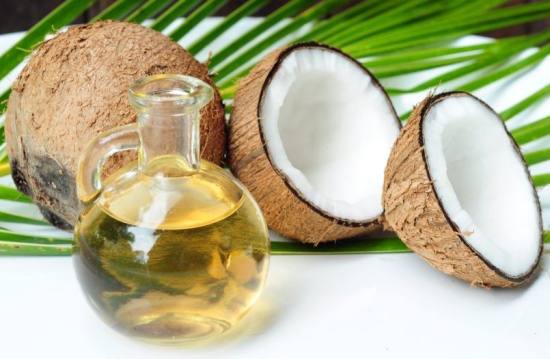

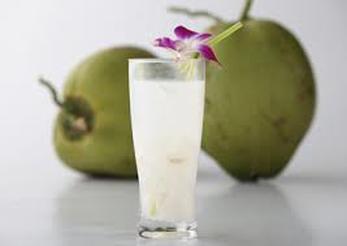



 RSS Feed
RSS Feed






